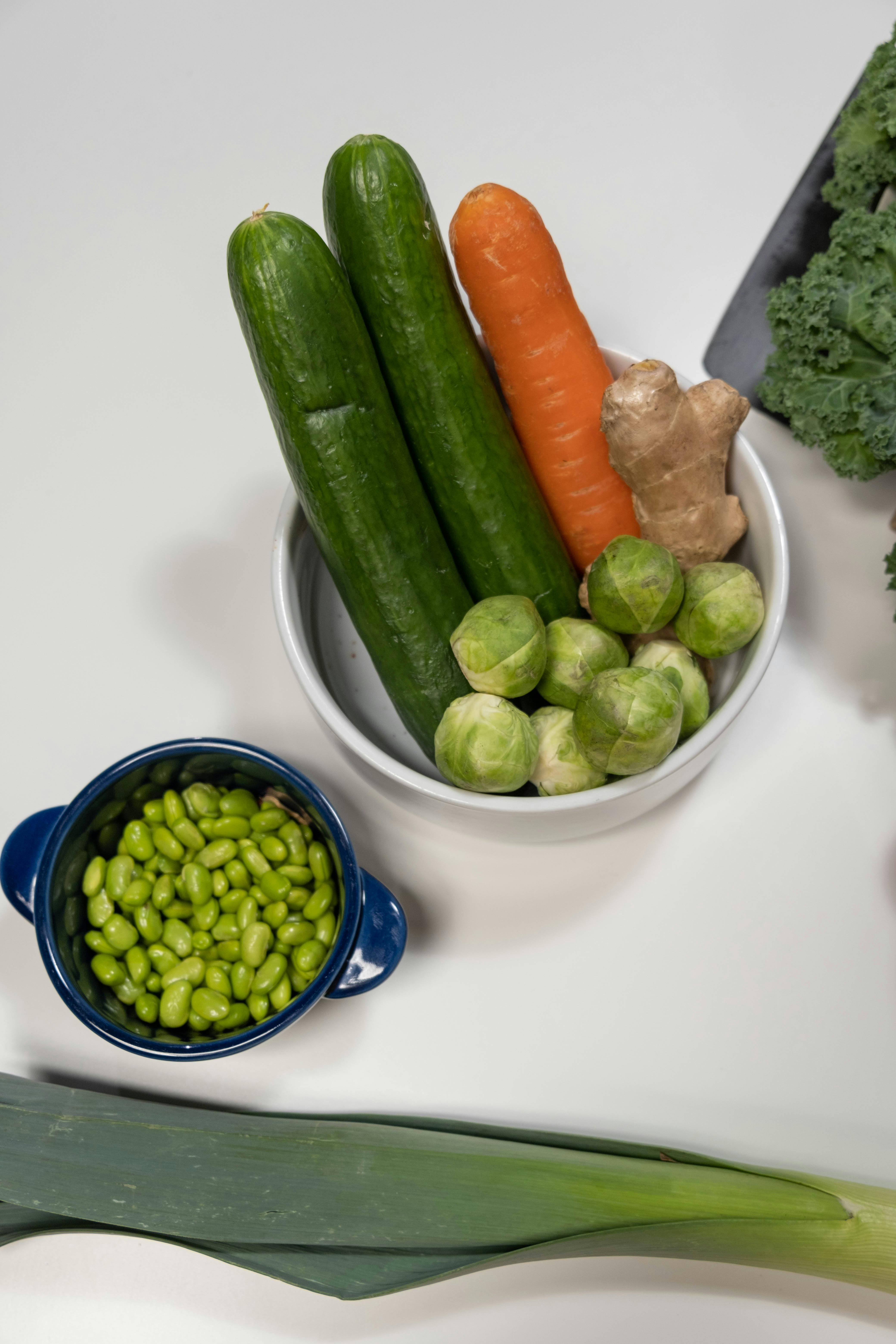Smart Ways to Optimize Healthy Meals Direct for Modern Lifestyles in 2025
With the ever-evolving pace of modern life, finding ways to incorporate **healthy meals** into our routines can be challenging. However, in 2025, we can embrace innovative strategies to ensure that nutritious food remains at the forefront of our diets. This article will discuss practical tips and strategies for optimizing **balanced meals**, incorporating **clean eating** habits, and the significance of **family-friendly dinners** tailored to fit everyone's needs.
Meal Prep Ideas for Busy Lives
Meal prepping is a game changer for those with hectic schedules. When we look at **meal prep ideas**, the focus is on convenience without compromising nutrition. Utilizing a weekend day to prepare various **wholesome meals** can save time during the week and reduce stress. Start by selecting **quick healthy recipes** that cater to your dietary preferences—consider **gluten-free recipes**, **vegan meals**, or **low-carb meals** depending on your needs. By batch cooking grains like quinoa or brown rice, roasting seasonal vegetables, and preparing protein-rich food such as chicken or beans, you can have multiple balanced meals ready to go.
Simple Steps for Effective Meal Prepping
To begin your meal prep journey, organize the process. Invest in transparent **meal prepping containers** to easily see what's available. Start by designing a template for your meals, ensuring a balance of essential nutrients. Include a variety of food groups—layer your meals with lean proteins, healthy fats, and fiber-rich foods to stay full and energized. Opt for **healthy cooking techniques**, like steaming or grilling, which require less oil and retain nutrients better than frying. As an example, you could prepare a quota of grilled chicken, a mix of roasted vegetables, and a good portion of whole grains. This structured approach leads to smooth mealtimes and encourages **mindful eating**.
Incorporating Seasonal Ingredients
Using **seasonal ingredients** can elevate your meal prep significantly. Not only they are fresher, but they also usually have a better nutritional profile. For instance, adding **fresh herbs** and local produce into your meals enhances both flavor and nutrient density. Seasonal **superfoods** like kale in the winter or tomatoes in the summer can easily be integrated into your **flavorful salads** or side dishes. Remember, this approach is budget-friendly as well; local produce tends to be less expensive. Apportion your meals by including a RAW salad at lunch and a hearty vegetable soup for dinner, ensuring that every bite benefits your body.
Healthy Eating Habits to Adopt
Adopting positive **healthy eating habits** can make a significant difference in maintaining good nutrition. Set meal times that help prevent excessive snacking, focusing instead on **meal timing** that optimizes energy levels throughout the day. Establishing consistent portion control can also be essential for achieving optimal nutrition. Use **portion control plates** to help regulate how much you eat, promoting a setup that encourages health without sacrificing enjoyment.
Mindful Eating Practices
Mindful eating emphasizes being present with your food choices during meals. Practicing this can enhance the enjoyment of **clean eating**, establishing a unique perception of taste that might otherwise go unnoticed. To embrace this, avoid distractions such as phones or televisions during meals. Focus instead on the flavors, textures, and appearance of your **nutritious food**. This practice not only enhances satisfaction but also discourages overeating, fostering an environment of **healthy eating habits**.
Smart Snacking Choices
Snacking can often derail healthy intentions if quick options are unsatisfying. However, preparing **healthy snacks** can help mitigate cravings while ensuring you maintain energy throughout your day. Consider portable options, such as **protein smoothies**, **superfood energy balls**, or **fiber-rich snacks** like air-popped popcorn or sliced vegetables with hummus. Mindful snack preparation not only saves you from unhealthy cravings but also keeps you excited about nutritious choices that fuel your lifestyle.
Customizing Meals for Dietary Restrictions
In 2025, understanding and customizing meals to cater to different **dietary restrictions** is paramount. Personalized nutrition is about recognizing the unique needs of each individual, whether gluten-free, vegan, or low-sugar diets. Being equipped with **meal replacement ideas** and **healthy food swaps** also facilitates better adherence to dietary choices.
Creative Recipes for Various Diets
When considering **healthy cuisines**, creativity in the kitchen pays off. There are countless innovative recipes tailored for those with specific dietary restrictions. For example, quinoa bowls can suit gluten-free diets while still appearing gourmet by incorporating roasted vegetables, tahini, and spices. Similarly, a plant-based approach can be implemented where legumes take the center stage, providing crucial nutrients, including proteins and vitamins, perfect for vegetarian meals.
Planning Family-Friendly Dinners
For families, creating **family-friendly dinners** that accommodate everyone can pose a challenge. However, meal customization enables everyone’s tastes and restrictions to be met without compromising variety or taste. One practical solution is to prepare a DIY taco night where each family member can select their toppings, including low-calorie sources like lean meats, fresh veggies, and various salsas. This encourages participation and fosters connection around nutrition, perfect for **meal planning tips** as we balance convenience with health.
Key Takeaways
- Meal prepping is essential for maintaining a healthy routine in a busy lifestyle while ensuring balanced nutrition.
- Adopting mindful eating practices can improve enjoyment and satisfaction with nutritious food.
- Utilizing seasonal ingredients and smart cooking techniques ensures meals are both delicious and nutritious.
- Customizable meal solutions enable families and individuals with various dietary needs to enjoy balanced meals.
- Healthy snacks can be both satisfying and nourishing, keeping cravings at bay.
FAQ
1. How can I incorporate more superfoods into my meals?
To effectively integrate **superfoods** like chia seeds, quinoa, or goji berries into your diet, consider adding them to smoothies, salads, or oats. Schedule a weekly shop for local produce featuring these nutrient-dense foods or create meals around them, such as quinoa salads or chia puddings, addressing both health and flavor.
2. What are some quick healthy recipes for busy weekdays?
For hectic weekdays, consider **clean eating** options like stir-fried vegetables with lean proteins or salads topped with chickpeas. Overnight oats can also provide quick, nutritious breakfasts. Each recipe can be customized according to seasonal ingredients and dietary preferences.
3. How do meal planning tips improve my eating habits?
Effective **meal planning tips** not only save time and reduce stress but also promote healthier choices. By pre-selecting meals for the week, it’s easier to resist unhealthy convenience foods and ensure that you consume a balanced diet tailored to your family's needs.
4. What are some family-friendly meal ideas?
For **family-friendly meals**, consider hosting a build-your-own pizza night with whole wheat crusts, fresh vegetables, and lean protein like grilled chicken or turkey. Another option includes taco nights, which can allow customization and accommodate various dietary restrictions.
5. How can I maintain a balanced diet on a budget?
Maintaining a **balanced diet** while being budget-conscious is easier through smart grocery shopping. Focus on whole grains, seasonal vegetables, and legumes. Planning meals around sales or buying in bulk can also save money while ensuring variety and nutrition.
6. What role do portion control and mindful eating play?
**Portion control** paired with **mindful eating** enhances meal experiences by ensuring that food is enjoyed fully, leading to satiety and satisfaction while reducing food waste. This approach stabilizes eating habits towards more nutritious choices without strict dieting.


